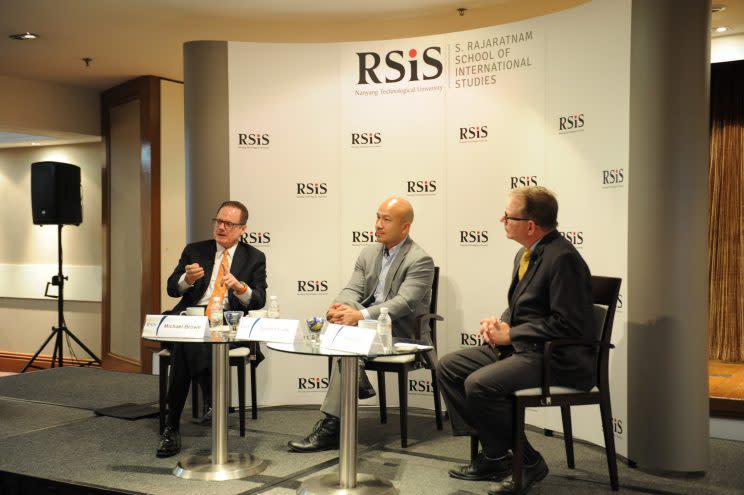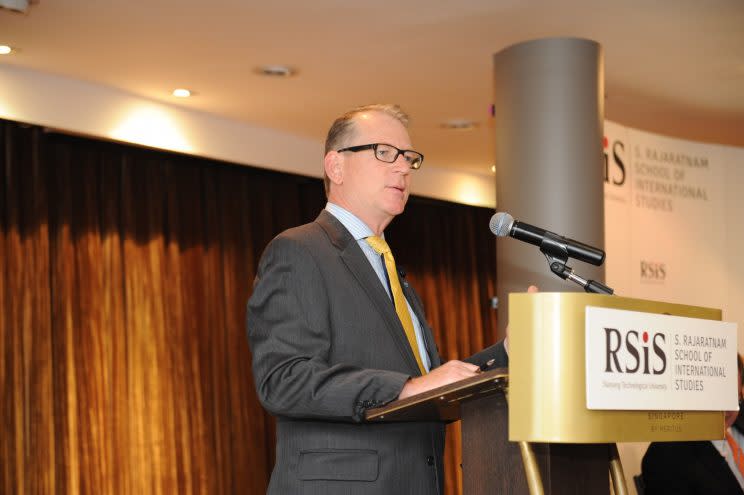US businesses will stay engaged despite Trump's anti-trade talk: analysts

Trade globalisation means that American big businesses will remain engaged with Asia and the world at large despite President-elect Donald Trump’s protectionist rhetoric, said two prominent academics.
“I’m not too concerned that corporate America is going to fall in line with…bad economic policies that Trump stood for during the election season. At the end of the day, CEOs have a responsibility to their shareholders,” said Professor Bates Gill of the Strategic and Defence Studies Centre at Australian National University.
Professor Michael Brown of the Elliott School of International Affairs at George Washington University added that the US is deeply engaged in international affairs. “That’s not going to disappear next week, regardless of what Donald Trump wants to do. It is in the US’ interest to continue to be engaged at a deep level”
Gill and Brown were speaking in Singapore last Thursday (12 January) at “US-Asia Relations: The Next Four Years and Beyond”. The dialogue, attended by more than 150 people, was organised by the S. Rajaratnam School of International Studies (RSIS) and moderated by its dean Professor Joseph Liow.
The academics also noted that there is much potential for deep internal divisions in the Trump administration, given the differing philosophies of his designated key officials.
The reality of global trade

During the presidential campaign, Trump had advocated protectionist trade policies. He also pledged to label China a currency manipulator on his first day in office, and that he would jettison the Trans-Pacific Partnership, a proposed multilateral trade deal championed by outgoing US President Barack Obama.
But Gill told the audience that Trump and his immediate advisors are clearly open to engaging with China for business dealings, pointing to two recent meetings.
Last November, Jared Kushner, Trump’s son-in-law and special advisor, held a business meeting with Wu Xiaohui, a real estate mogul and owner of the Anbang Insurance Group. According to The New York Times, the Group has estimated assets of some US$285 billion.
Earlier this month, Trump granted an audience to Alibaba Group founder and CEO Jack Ma at Trump Tower. The duo unveiled plans to create 1 million jobs in the US by allowing small and medium-sized businesses to sell to China through the company’s platforms.
Gill noted that Trump has the tendency to play to the gallery, citing the deal that he cut last month with air conditioner maker Carrier to save some 800 jobs in Indiana. The announcement was little more than a “sop to the president”, Gill said.
“Once Trump is in office, I suspect we will see a lot less of this showmanship.”



